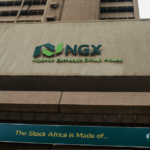THERE are expectations that the Central Bank of Nigeria (CBN) will rollover maturing T-bills worth N141.94 billion via the primary market, viz: 91-day bills worth N3.15 billion, 182-day bills worth N1.49 billion and 364-day bills worth N137.30 billion and that the stop rates of the issuances will decline due to ample liquidity conditions.
Meanwhile, dealers said the economic reform by the new administration aided the bond market performance in first half (H1) 2023.
The domestic bond market started the year with a bearish tone as yields maintained an upward trend, driven by higher inflation expectations, credit rating downgrades and debt sustainability concerns about Ways and Means Securitisation.
Subsequently, the naira redesign policy diluted the selloff sentiments as banks with excess liquidity invested in risk-free instruments in February and March. By second quarter (Q2) 2023, investors began to exit the market given the worsening negative real return. The average yield rose to a peak of 14.37 percent as of May 16, 2023.
Analysts at Proshare spotted a consistent decline in the average yield since the inauguration of the new President from 14.27 percent on May 30, 2023, to 13.16 percent as of June 30, 2023. The average yield for the Domestic bond (Year-to-Date) dropped by 113 basis points (bps) to 13.16 percent as of June 30, 2023.
The buoyant system liquidity during the period strengthened large subscriptions for Primary Market Auctions (PMAs) held.
Basically, a bond yield is the return an investor realises on that bond.
Falling interest rates make bond prices rise and bond yields to fall. Conversely, rising interest rates cause bond prices to fall and bond yields to rise. In the Nigerian market, interest rates are high and this is bringing down bond prices and the return an investor realises on the bond are rising.
In a related development, dealers say the Eurobond average yield compressed by 1582 bps to 9.63 percent on June 29, 2023, from 11.44 percent on December 29, 2022, as demand improved at the tail end of May to June 30, 2023.
The market witnessed significant selloffs in March, April and May, slightly like the domestic market, driven by the Fed hike and credit rating downgrade.
Analysts expect the moderation in average yield to persist in July as foreign investors continue to play safe in expectation of new reforms, albeit for H2 2023, as there are expectations that the average yield will slope upward as Foreign Portfolio Investors (FPIs) seek attractive yields to cushion the inflationary impact of fuel and exchange rate subsidy removal.
READ ALSO FROM NIGERIAN TRIBUNE
WATCH TOP VIDEOS FROM NIGERIAN TRIBUNE TV
- Let’s Talk About SELF-AWARENESS
- Is Your Confidence Mistaken for Pride? Let’s talk about it
- Is Etiquette About Perfection…Or Just Not Being Rude?
- Top Psychologist Reveal 3 Signs You’re Struggling With Imposter Syndrome
- Do You Pick Up Work-Related Calls at Midnight or Never? Let’s Talk About Boundaries







